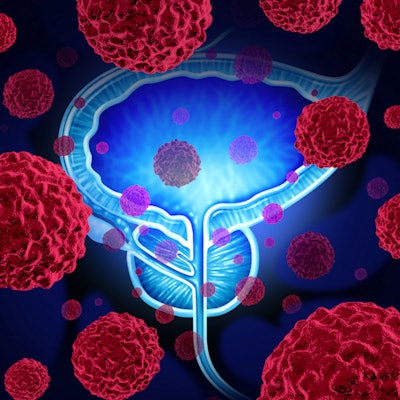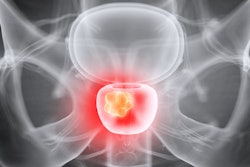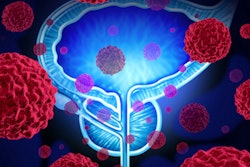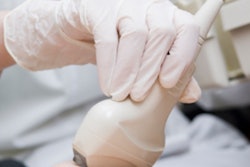
New clinical guidance supported by the U.K. Royal College of Radiologists (RCR) has provided detailed recommendations about when men should abstain from receiving anal sex prior to or after getting tested and treated for prostate cancer.
The guidance, which was presented at the UK Imaging & Oncology Congress (UKIO) this week in Liverpool, U.K., also warns of the possible risks to sexual partners from exposure to radiation. Specifically, it recommends that patients not receive anal sex for the following time periods:
- One week before a prostate-specific antigen (PSA) blood test, as it may lead to an inaccurate result
- Two weeks following a transrectal ultrasound biopsy, as anal sex during that period may cause bleeding, pain, or an increased risk of infection
- One week following a transperineal biopsy to allow for bruising to settle and reduce painful intercourse
- Six weeks following a radical prostatectomy, as anal sex could cause bleeding, pain, and increase the risk of urinary incontinence
- Two months afterward and during external-beam radiotherapy, as it could worsen acute side effects, be painful, or lead to long-term complications such as rectal bleeding
The 15 clinical oncologists and 11 urological surgeons who prepared the consensus opinion were recruited with assistance from the RCR, the British Uro-oncology Group, Prostate Cancer UK, and the Gay and Lesbian Association of Doctors and Dentists. Radiographer Sean Ralph of the Clatterbridge Cancer Centre in Wirral, U.K., served as the guideline coordinator.
 Sean Ralph of the Clatterbridge Cancer Centre in Wirral, U.K. Image courtesy of the UKIO.
Sean Ralph of the Clatterbridge Cancer Centre in Wirral, U.K. Image courtesy of the UKIO."There is a lack of concrete clinical evidence on this subject," Ralph noted in a UKIO statement. "What we have done is take the opinions of some of the top clinicians working within prostate cancer in order to produce guidance where none previously existed. It's the first real step in informing both doctors and patients about best practice advice based on expert clinical experience and judgement."
The clinical oncologists on the panel were unable to agree, however, on how long men should abstain from receiving anal sex after permanent seed brachytherapy. After consulting with medical physicists, however, the panel agreed that men should abstain from receiving anal sex for six months to minimize radiation exposure to sexual partners. Meanwhile, patients receiving high dose-rate brachytherapy were advised to avoid anal sex for two months.
Ralph emphasized that prostate cancer should be viewed as a disease that affects sexual health, well-being, and relationships.
"Health professionals should, therefore, be asking men questions about their sexual orientation and sexual practices in order to ensure that they have the right information to make informed treatments decisions and to manage their side effects appropriately," Ralph stated. "Patients should be cared for in a manner that takes account of their needs as an individual, including their sexual orientation. Patient-centred care needs to be truly incorporated into the training of health professionals and the culture of the NHS [National Health Service] and not just used as the latest buzzword as part of some target-driven, box-ticking exercise."



















